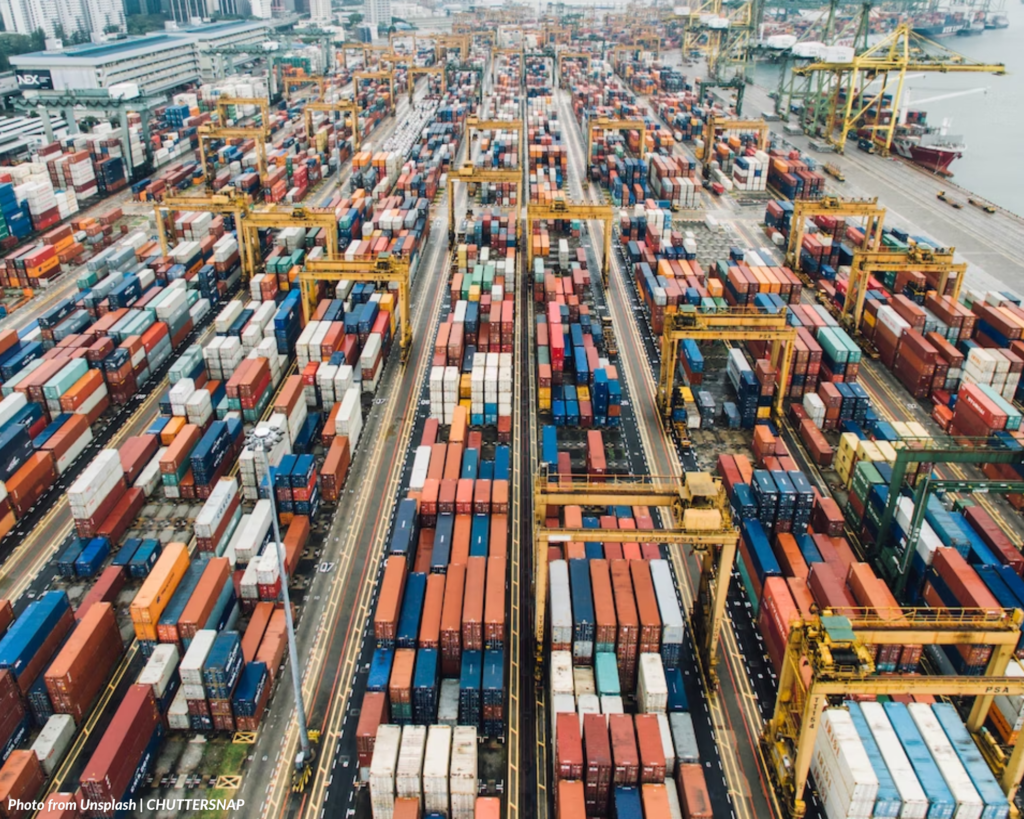
Photo from Unsplash | CHUTTERSNAP
The following post does not create a lawyer-client relationship between Alburo Alburo and Associates Law Offices (or any of its lawyers) and the reader. It is still best for you to engage the services of a lawyer or you may directly contact and consult Alburo Alburo and Associates Law Offices to address your specific legal concerns, if there is any.
Also, the matters contained in the following were written in accordance with the law, rules, and jurisprudence prevailing at the time of writing and posting, and do not include any future developments on the subject matter under discussion.
AT A GLANCE:
Under Republic Act No. 10863 or the Customs and Tariff Modernization Act, all goods may be freely imported into and exported from the Philippines without need for import and export permits, clearances or licenses unless otherwise prohibited by law or other regulations. (Section 116, R.A. No. 10863)
Goods which are subject to regulation shall be imported or exported only after securing the necessary goods declaration or export declaration, clearances, licenses, and any other requirements, prior to importation or exportation. In case of importation, submission of requirements after arrival of the goods but prior to release from customs custody shall be allowed but only in cases provided for by governing laws or regulations. (Section 117, R.A. No. 10863)
Under Republic Act No. 10863 or the Customs and Tariff Modernization Act, all goods may be freely imported into and exported from the Philippines without need for import and export permits, clearances or licenses unless otherwise prohibited by law or other regulations. (Section 116, R.A. No. 10863)
Goods which are subject to regulation shall be imported or exported only after securing the necessary goods declaration or export declaration, clearances, licenses, and any other requirements, prior to importation or exportation. In case of importation, submission of requirements after arrival of the goods but prior to release from customs custody shall be allowed but only in cases provided for by governing laws or regulations. (Section 117, R.A. No. 10863)
The Customs and Tariff Modernization Act prohibits the importation and exportation of certain products in line with the State’s policy to “institute fair and transparent customs and tariff management that will efficiently facilitate international trade, prevent and curtail any form of customs fraud and illegal acts”, among others.
Moreover, the law intends to adopt clear and transparent customs rules, regulations, policies and procedures, consistent with international standards and customs best practices.
The law says:
“The importation and exportation of the following goods are prohibited:
(a) Written or printed goods in any form containing any matter advocating or inciting treason, rebellion, insurrection, sedition against the government of the Philippines, or forcible resistance to any law of the Philippines, or written or printed goods containing any threat to take the life of, or inflict bodily harm up on any person in the Philippines;
(b) Goods, instruments, drugs and substances designed, intended or adapted for producing unlawful abortion, or any printed matter which advertises, describes or gives direct or indirect information where, how or by whom unlawful abortion is committed;
(c) Written or printed goods, negatives or cinematographic films, photographs, engravings, lithographs, objects, paintings, drawings or other representation of an obscene or immoral character;
(d) Any goods manufactured in whole or in part of gold, silver or other precious metals or alloys and the stamp, brand or mark does not indicate the actual fineness of quality of the metals or alloys;
(e) Any adulterated or misbranded food or goods for human consumption or any adulterated or misbranded drug in violation of relevant laws and regulations;
(f) Infringing goods as defined under the Intellectual Property Code and related laws; and
(g) All other goods or parts thereof which importation and exportation are explicitly prohibited by law or rules and regulations issued by the competent authority.” (Section 118, R.A. No. 10863)
Meanwhile, there are other products where its importation and exportation are not prohibited, but merely regulated.
The law says:
“Except when authorized by law or regulation, the importation and exportation of the following restricted goods are prohibited:
(a) Dynamite, gunpowder, ammunitions and other explosives, firearms and weapons of war, or parts thereof;
(b) Roulette wheels, gambling outfits, loaded dice, marked cards, machines, apparatus or mechanical devices used in gambling or the distribution of money, cigars, cigarettes or other goods when such distribution is dependent on chance, including jackpot and pinball machines or similar contrivances, or parts thereof; (c) Lottery and sweepstakes tickets, except advertisements thereof and lists of drawings therein;
(c) Marijuana, opium, poppies, coca leaves, heroin or other narcotics or synthetic drugs which are or may hereafter be declared habit forming by the President of the Philippines, or any compound, manufactured salt, derivative, or preparation thereof, except when imported by the government of the Philippines or any person duly authorized by the Dangerous Drugs Board, for medicinal purposes;
(d) Opium pipes or parts thereof, of whatever material; and
(e) Any other goods whose importation and exportation are restricted.
The restriction to import or export the above stated goods shall include the restriction on their transit.” (Section 119, R.A. No. 10863)
Read also: Quezon Day (Quezon and Aurora Provinces and Quezon City) (Republic Act No. 6741 of 1989)
Alburo Alburo and Associates Law Offices specializes in business law and labor law consulting. For inquiries regarding taxation and taxpayer’s remedies, you may reach us at info@alburolaw.com, or dial us at (02)7745-4391/0917-5772207.
All rights reserved.


